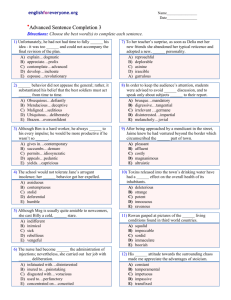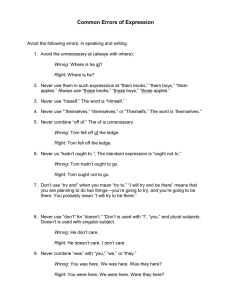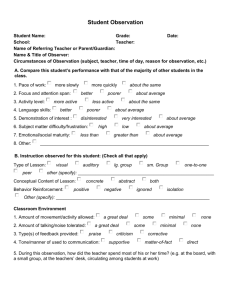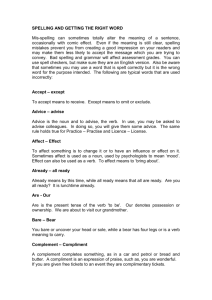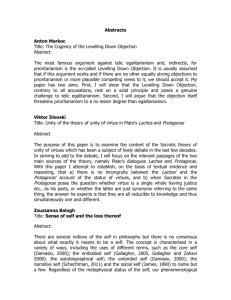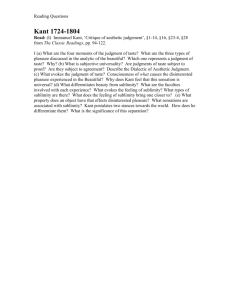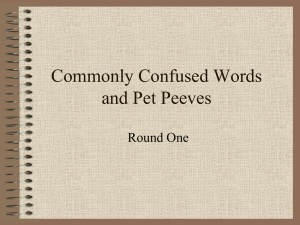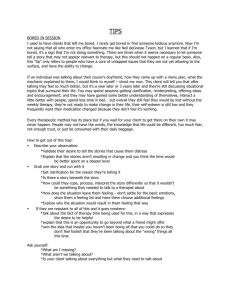Jan 12, 2009 - Disinterested and Uninterested
advertisement
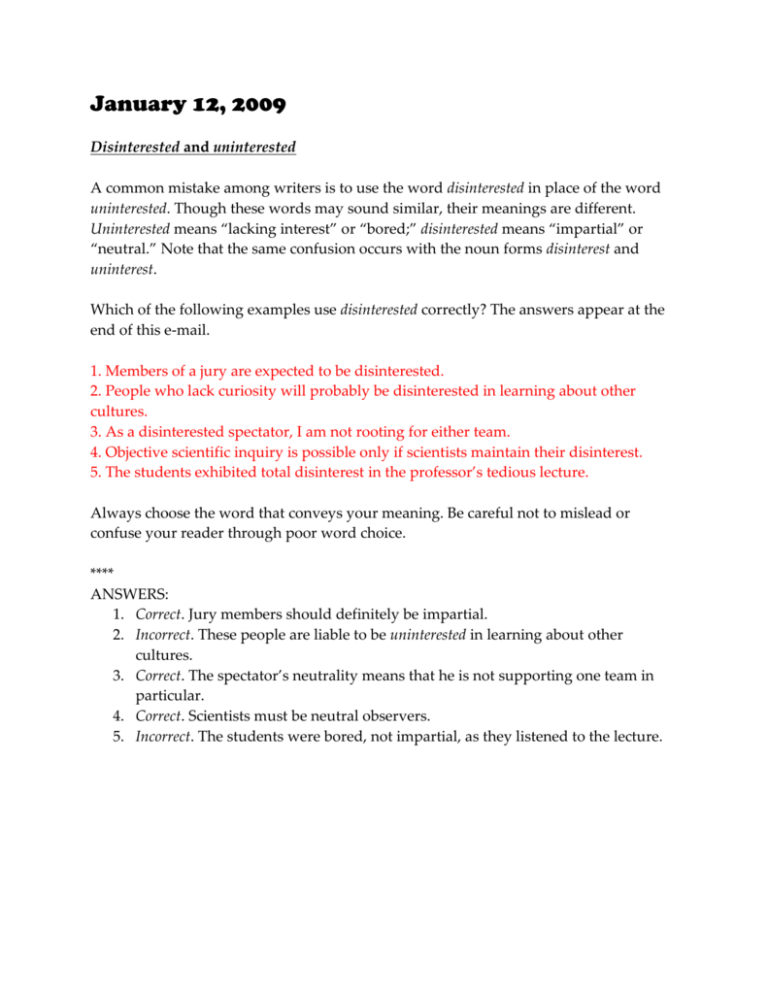
January 12, 2009 Disinterested and uninterested A common mistake among writers is to use the word disinterested in place of the word uninterested. Though these words may sound similar, their meanings are different. Uninterested means “lacking interest” or “bored;” disinterested means “impartial” or “neutral.” Note that the same confusion occurs with the noun forms disinterest and uninterest. Which of the following examples use disinterested correctly? The answers appear at the end of this e-mail. 1. Members of a jury are expected to be disinterested. 2. People who lack curiosity will probably be disinterested in learning about other cultures. 3. As a disinterested spectator, I am not rooting for either team. 4. Objective scientific inquiry is possible only if scientists maintain their disinterest. 5. The students exhibited total disinterest in the professor’s tedious lecture. Always choose the word that conveys your meaning. Be careful not to mislead or confuse your reader through poor word choice. **** ANSWERS: 1. Correct. Jury members should definitely be impartial. 2. Incorrect. These people are liable to be uninterested in learning about other cultures. 3. Correct. The spectator’s neutrality means that he is not supporting one team in particular. 4. Correct. Scientists must be neutral observers. 5. Incorrect. The students were bored, not impartial, as they listened to the lecture.
